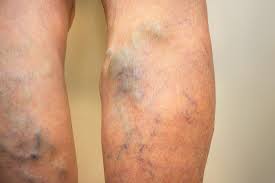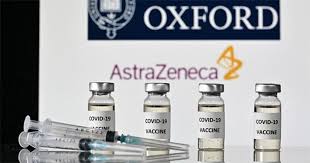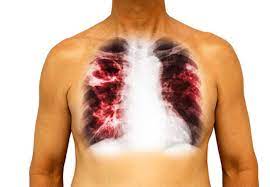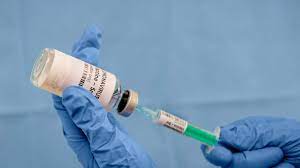Amarachukwu Allison: Doctor who came in contact with three different viral infections and lived to tell the story
 During the Ebola period of 2014, Dr. Amarachukwu Allison was quarantined as a secondary contact. In November 2019, she was diagnosed with a viral haemorrhagic fever which she was exposed to and had to self-isolate for a week.
During the Ebola period of 2014, Dr. Amarachukwu Allison was quarantined as a secondary contact. In November 2019, she was diagnosed with a viral haemorrhagic fever which she was exposed to and had to self-isolate for a week.
Her third quarantine was in February 2020 when she attended to a patient that turned out to be Nigeria’s index COVID-19 case — an Italian man who suddenly took ill after flying in from Milan, Italy, which was undergoing a virulent experience of the coronavirus then.
Varicose veins may increase risk of blood clot
 Medical experts say patients with varicose veins are more likely to develop a blood clot; and that varicose veins may be an early warning sign of chronic venous disease. Varicose veins are enlarged, swollen, and twisting veins, often appearing blue or dark purple. They happen when faulty valves in the veins allow blood to flow in the wrong direction or to pool.
Medical experts say patients with varicose veins are more likely to develop a blood clot; and that varicose veins may be an early warning sign of chronic venous disease. Varicose veins are enlarged, swollen, and twisting veins, often appearing blue or dark purple. They happen when faulty valves in the veins allow blood to flow in the wrong direction or to pool.
Speaking with PUNCH HealthWise, a consultant family physician at the Lagos State University Teaching Hospital, Ikeja, Dr. Oluwajimi Sodipo, says varicose veins can increase the risk of a blood clot.
Ineligible persons shun phase 1 directives, get COVID-19 vaccination
 There was high turnout for COVID-19 vaccination early Tuesday as residents besieged the Sango-Agege Primary Healthcare Centre, Lagos, for the exercise. PUNCH Healthwise observed that apart from those eligible to benefit from the first phase of the COVID-19 vaccination exercise, those who are not eligible were also vaccinated.
There was high turnout for COVID-19 vaccination early Tuesday as residents besieged the Sango-Agege Primary Healthcare Centre, Lagos, for the exercise. PUNCH Healthwise observed that apart from those eligible to benefit from the first phase of the COVID-19 vaccination exercise, those who are not eligible were also vaccinated.
Sango-Agege Primary Healthcare Centre is one of the 88 designated COVID-19 vaccination centres spread across the 20 local government areas of Lagos State. Recall that the Lagos State Commissioner for Health, Prof. Akin Abayomi, had said that the first phase of the ongoing COVID vaccination exercise in the state was strictly for health workers, frontline workers, and essential duty workers.
Nigeria yet to report adverse events from AstraZeneca vaccine –NPHCDA
 The National Primary Health Care Development Agency has not received any official report of serious adverse effects from the 215,277 people who have received the first doses of the Oxford-AstraZeneca vaccines. The NPHCDA Executive Director, Dr. Faisal Shuaib, disclosed this on the agency’s official Twitter handle @NphcdaNG on Wednesday.
The National Primary Health Care Development Agency has not received any official report of serious adverse effects from the 215,277 people who have received the first doses of the Oxford-AstraZeneca vaccines. The NPHCDA Executive Director, Dr. Faisal Shuaib, disclosed this on the agency’s official Twitter handle @NphcdaNG on Wednesday.
“As you are aware, AstraZeneca/Oxford COVID-19 vaccines have been distributed to all states except Kogi and the first phase of our vaccination focusing on frontline health workers and others on essential duties have begun in earnest,” he said.
‘Mid-aged female COVID-19 survivors risk long-term problems’
 Two UK studies on Wednesday found out that women in their 40s and 50s appear to be more at risk of long-term problems following discharge from hospital after COVID-19. According to the study, many of them are suffering months of persistent symptoms such as fatigue, breathlessness and brain fog.
Two UK studies on Wednesday found out that women in their 40s and 50s appear to be more at risk of long-term problems following discharge from hospital after COVID-19. According to the study, many of them are suffering months of persistent symptoms such as fatigue, breathlessness and brain fog.
One study found that five months after leaving hospital, COVID-19 patients who were also middle-aged, white, female, and had other health problems such as diabetes, lung or heart disease, tend to be more likely to report long-COVID symptoms.
197 people have ‘moderate drug-resistant’ tuberculosis in Lagos -Commissioner
 The Lagos Commissioner for Health, Prof. Akin Abayomi, says about 197 people in the state are living with ‘moderate drug-resistant’ tuberculosis. Abayomi said this on Wednesday in commemoration of the 2021 World TB Day organised by the Disease Control Directorate of the Lagos Ministry of Health.
The Lagos Commissioner for Health, Prof. Akin Abayomi, says about 197 people in the state are living with ‘moderate drug-resistant’ tuberculosis. Abayomi said this on Wednesday in commemoration of the 2021 World TB Day organised by the Disease Control Directorate of the Lagos Ministry of Health.
In a series of tweets via his official Twitter handle @ProfAkinAbayomi, the commissioner said the moderate drug-resistant TB is a dangerous type of TB currently emerging. “A dangerous type of TB called ‘the moderate drug-resistant TB’ is currently emerging, this type of TB is resistant to the normal treatment and we have about 197 people with this type of TB,” he tweeted.
Aspirin may reduce risk of severe illness, COVID-19 deaths, study says
 A new study suggests that low-dose aspirin may have lung-protective effects and reduce the need for mechanical ventilation, ICU admission, and in-hospital mortality in hospitalised COVID-19 patients.
A new study suggests that low-dose aspirin may have lung-protective effects and reduce the need for mechanical ventilation, ICU admission, and in-hospital mortality in hospitalised COVID-19 patients.
Researchers at George Washington University published their findings in the April 2021 edition of the monthly peer-reviewed journal Anesthesia & Analgesia:Volume 132 – Issue 4 – p 930-941. It is titled, ‘Aspirin Use Is Associated With Decreased Mechanical Ventilation, Intensive Care Unit Admission, and In-Hospital Mortality in Hospitalized Patients With Coronavirus Disease 2019.’
What you can safely do after obtaining COVID-19 vaccination
 The United States Centres for Disease Control says that once someone completes the full dosage of the COVID-19 vaccine, they can gather indoors with other fully vaccinated people without wearing a mask.
The United States Centres for Disease Control says that once someone completes the full dosage of the COVID-19 vaccine, they can gather indoors with other fully vaccinated people without wearing a mask.
In the guidance released by the CDC on March 8, the agency also stated that a fully vaccinated person can gather indoors with unvaccinated people from one other household (for example, visiting with relatives who all live together) without masks unless any of those people or anyone they live with has an increased risk for severe illness from COVID-19.
Nigeria Still Far from Achieving 2022 Target on TB Control, Says WHO
 World Health Organisation (WHO) has expressed worry that the country may not be able to reach its set target of diagnosing and treating over 1.1 million TB cases by next year.
World Health Organisation (WHO) has expressed worry that the country may not be able to reach its set target of diagnosing and treating over 1.1 million TB cases by next year.
WHO’s worry came just as the Minister of Health, Dr. Osagie Ehanire said the first-line test for TB diagnosis, is barely 41 per vent; 317 out of 774 local government areas in the country.
Resident doctors threaten to go on strike April 1
 The National Association of Resident Doctors threatens to embark on a nationwide strike on April 1, 2021 over “poor welfare packages and unpaid wages,” among other demands. This followed the expiration of the 60-day ultimatum given to the Federal Government on January 25 for the payment of salary arrears of House officers across the country and to review hazard allowance, among other demands.
The National Association of Resident Doctors threatens to embark on a nationwide strike on April 1, 2021 over “poor welfare packages and unpaid wages,” among other demands. This followed the expiration of the 60-day ultimatum given to the Federal Government on January 25 for the payment of salary arrears of House officers across the country and to review hazard allowance, among other demands.
NARD noted that it has lost 17 doctors since the COVID-19 pandemic began in 2020, adding that families of deceased doctors are yet to benefit from the Death in Service Insurance Scheme. It also decried the continued payment of N5,000 as hazard allowance to its members,






